Will Patrick's Farma bioreactor could let owners brew their own drugs
MIT Media Lab graduate Will Patrick has designed a prototype desktop bioreactor that could enable the production of pharmaceutical drugs at home.
The cylinder-shaped Farma kitchen appliance could be used to grow, measure, filter and dry synthetically designed microbes.
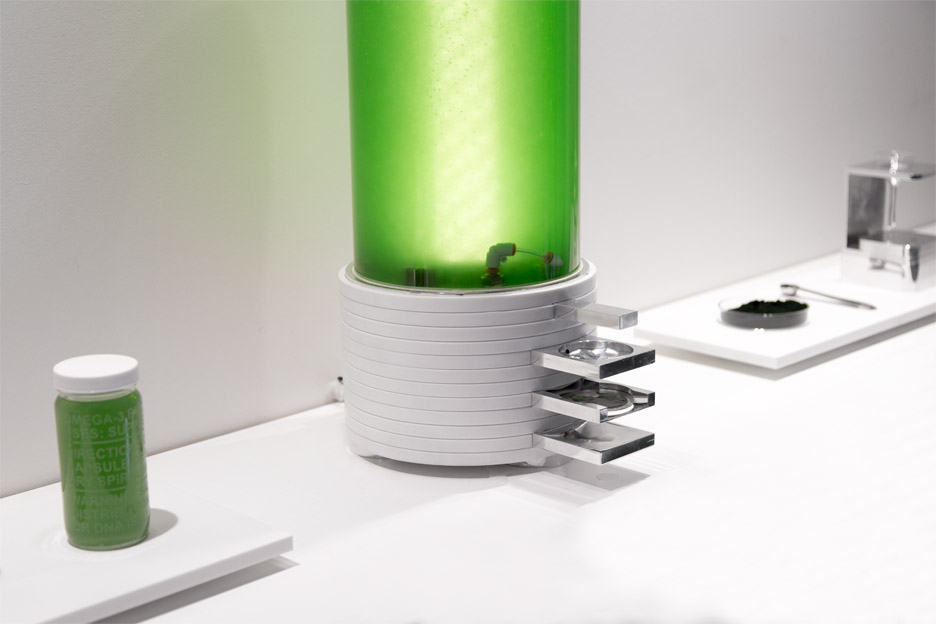
The owner would be able to order a starter culture, which could then be added to the device and grown until enough has been produced to be harvested for a daily dosage.
Patrick's first Farma prototype has been created for growing Spirulina that's been genetically modified to produce pharmaceutical drugs, but the designer has said it could be adapted for other uses.
"The prototype can control temperature and light levels, and aerate and mix the culture thoroughly," said Patrick, who previously served as a researcher in Neri Oxman's Mediated Matter group.
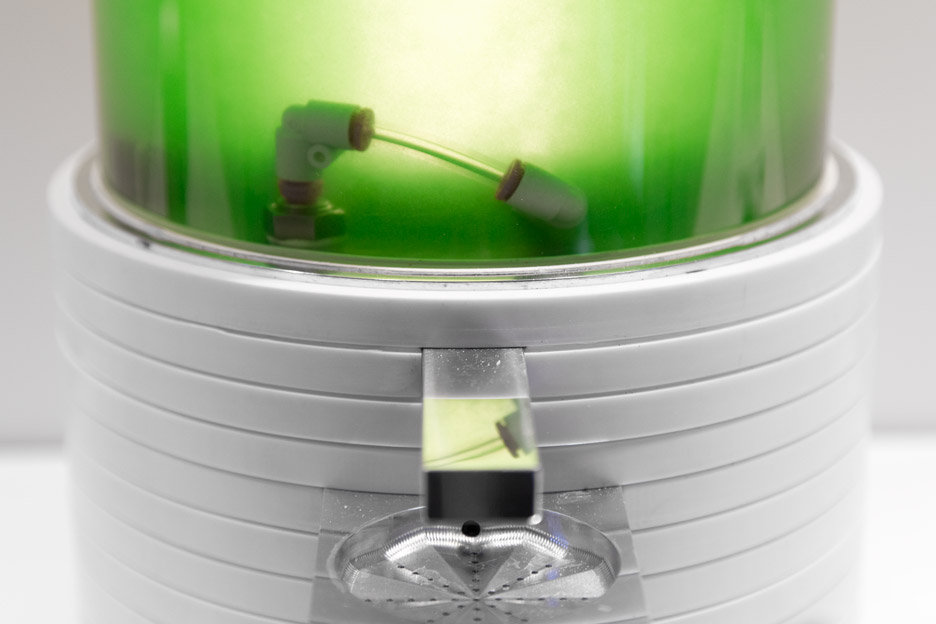
"It should be able to grow other organisms, including algae, yeast and E coli," he added.
The device also comes with a pill maker that allows the owner to add dried algae bacteria to gel capsules for consumption.
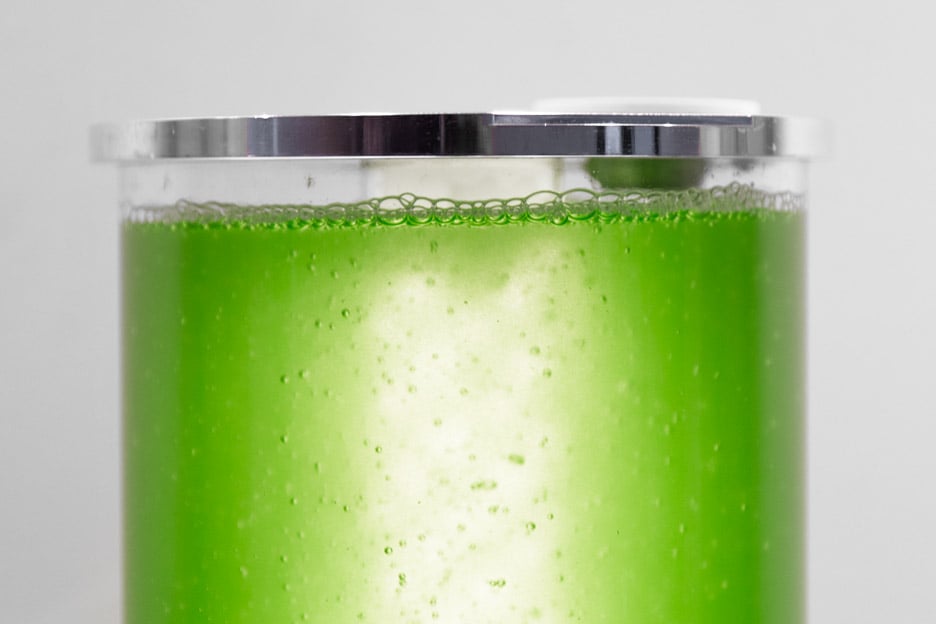
"I wanted to focus Farma on the societal and ethical implications of recent genetic engineering technology," said the designer.
Patrick researched techniques such as CRISPR technology, which can change the sequence of specific genes, and recent explorations into the ways technology could mass-produce opium-like drugs using yeast rather than poppies.
"I wanted to explore how it could be possible to commercialise this type of research for distributed drug production," he added.
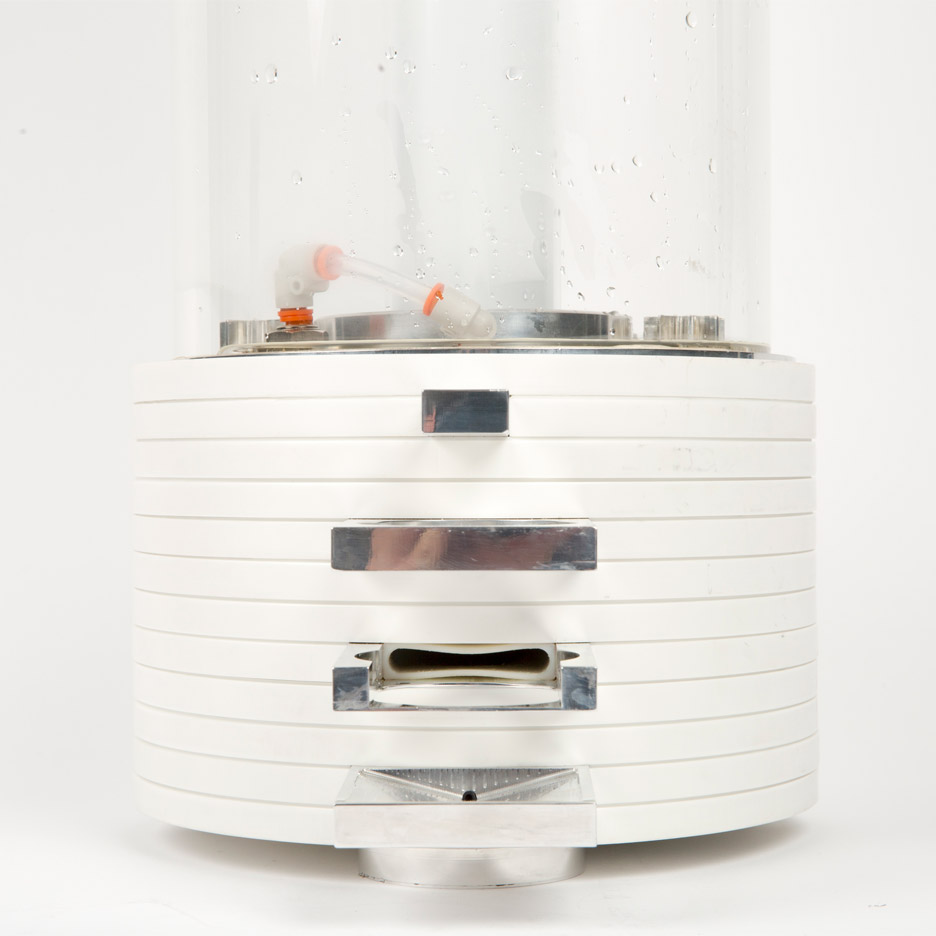
According to Patrick, the Farma would be most useful for the kinds of drugs that are used for long periods of time, such as anti-depressants, chemotherapy or insulin – rather than occasional drugs such as antibiotics.
"I can also imagine Farma being used to brew personalised supplements," he said.
Although currently still in prototype stage, Patrick believes the Farma and devices like it are closer to being realised than people might expect.
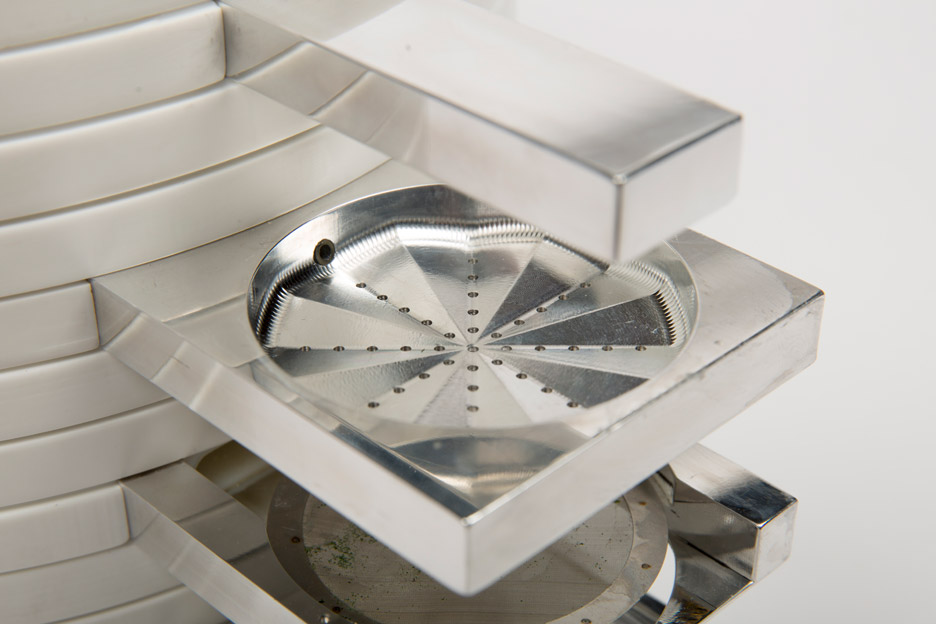
"There are several drugs that are now being produced in synthetically designed organisms, including human insulin, anti-malarials and opiates," he explained. "These drugs are currently produced in microbes such as E coli and yeast, both of which could be brewed at home in a bioreactor such as Farma."
As the tools for modifying and culturing organisms become more accessible and less expensive, designers and artists are beginning to suggest accessible alternatives.
Julie Legault recently developed a desktop biolab that would allow users to hack DNA at home, and monitor the progress of their creations.
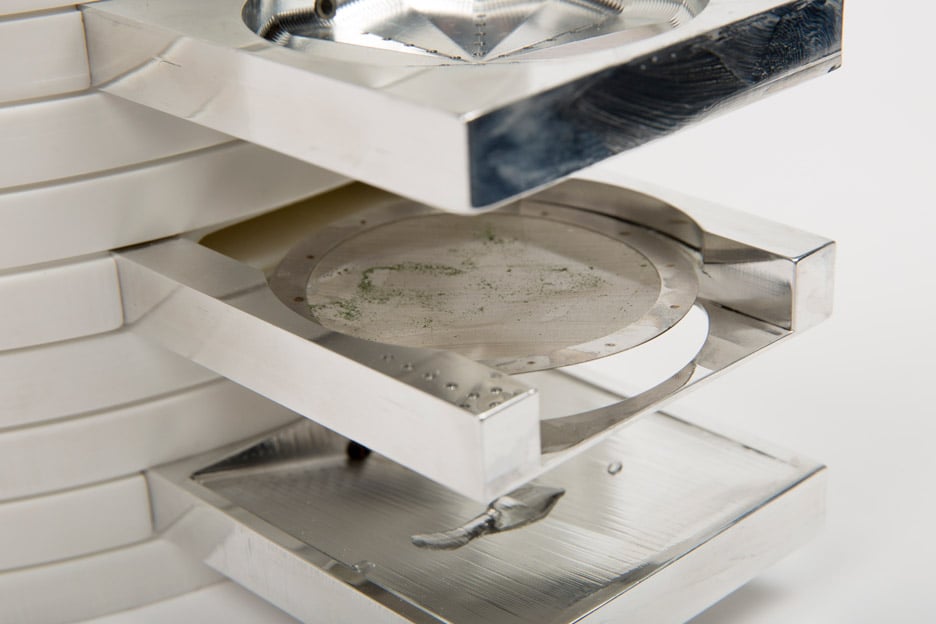
Biologist Aakriti Jain and industrial designer Guillian Graves teamed up to develop a machine that could let owners user bacteria and yeast to grow their own products without the use of a lab.
"I believe that much of the creativity and innovation within the biotechnology and pharmaceutical industry in the coming decades will be driven from the bottom-up by these new bio-design hackers," said Patrick.